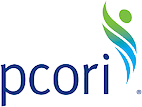With the PCORI grant, CAPriCORN was tasked with developing a cross-institutional data infrastructure capable of pooling and sharing electronic heath record and outcomes data from more than one million Chicago-area patients, including many high-risk patients. This pool of information will contribute to research about how providers in complex urban settings can overcome barriers to effective treatment, improve health outcomes, and drive down the costs of health care for both common and rare conditions. CAPriCORN’s network will focus specifically on sickle cell disease, anemia, asthma, recurrent Clostridium difficile, diabetes, and obesity.
In building this network, CAPriCORN’s mission is to provide an informatics infrastructure that will support collaborative, patient-centered outcomes research in the Chicago area. The research this network makes possible will help care providers to overcome the barriers of fragmentation and limited resources, identify and fill gaps in coverage through new partnerships, and improve health care delivery and patient outcomes both locally and nationwide.
Building and operating this data network is a major undertaking, requiring a robust computing infrastructure, the creation of procedures for the standardization of data types, and the utmost attention to maintaining patient privacy. Because of the CRI’s successes in building and maintaining the Clinical Research Data Warehouse, the CRI was naturally positioned to play a key role in UCM’s contribution to winning the PCORI grant and the development of the CAPriCORN project. Brian Furner, CRI’s Manager of Applications Development, has been the University’s informatics lead on this high-profile project, providing support at both institutional and network levels through his participation in the Informatics Work Group, the Data Model and Data Standards Committee, and several cohort working groups.
The CRI has provided the local computational infrastructure for the project, including the data in the CRDW and Clarity (UCM’s billing system), the code that transforms and loads the data into the CAPriCORN Common Data Model, and the servers housing the datamart and the PopMedNet client used in the project. Through the CRI’s efforts, the University of Chicago has been a consistent leader in implementing the informatics components of this important project.
Update, November 2016
In the second phase of the CAPriCORN grant, which began in August 2015, the University of Chicago has continued to be a national leader in operationalizing the PCORnet network. Due to the high fidelity of the data in our PCORnet data mart, the University was among only five institutions chosen to participate in the first wave of network-wide data characterization and to be given the “ready for research” designation indicating that we are ready to respond to research data requests from across the network. As of November 2016, the CRI has successfully responded to twenty queries.


